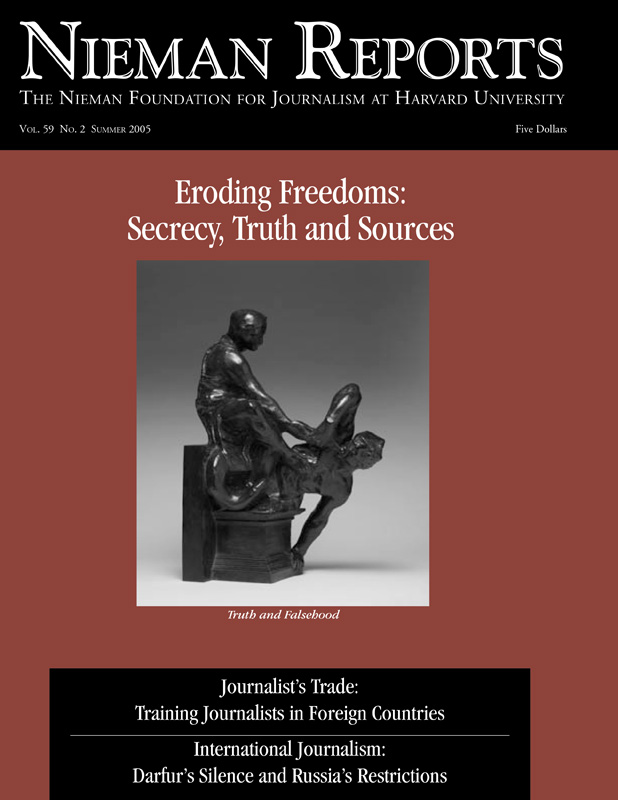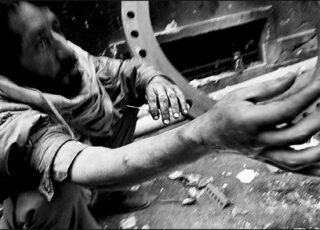ISSUE
Summer 2005

Eroding Freedoms: Secrecy, Truth and Sources
Among the casualties of the invasion and occupation of Iraq have been truth and trust, according to Sig Christenson, military affairs writer for the San Antonio Express-News. After working as both an embedded and independent reporter in Iraq, he writes about the “propaganda war within Gulf War II,” explaining that “Its roots are in Ground Zero, and I have been a willing participant. So, too, were many other reporters.”
Articles
International Journalism Journalist’s Trade
Sharing Techniques of Publishing
In Jakarta, an admirable venture was in need of organizational training.
June 15, 2005
